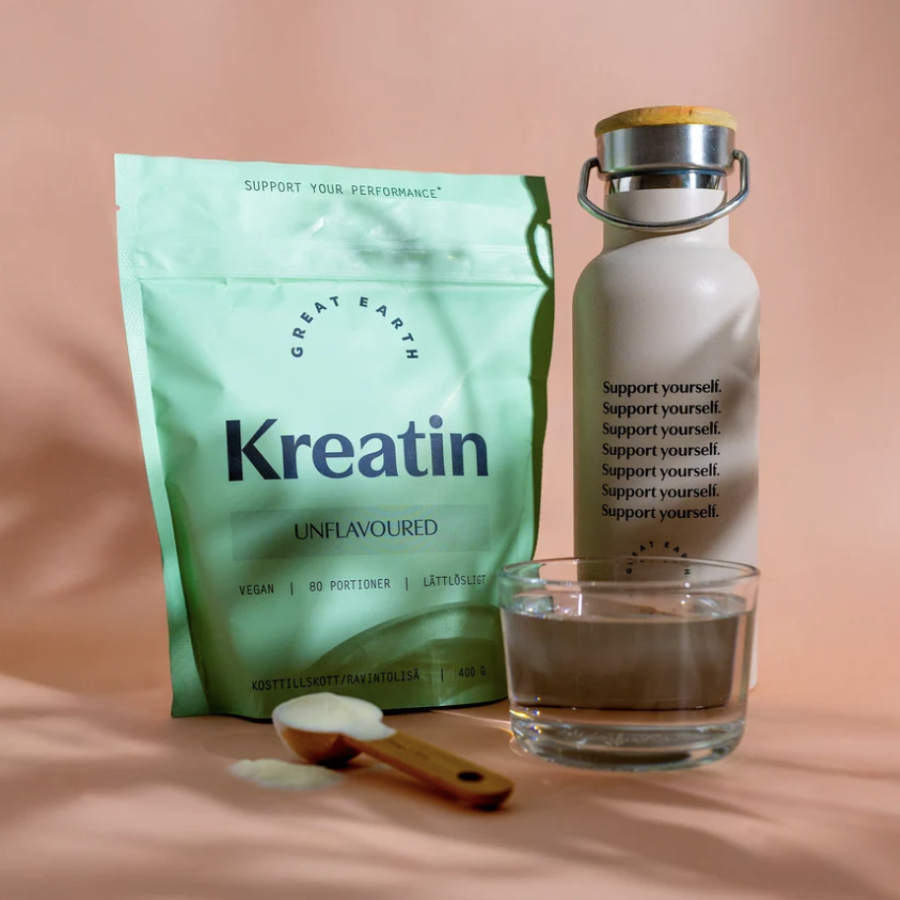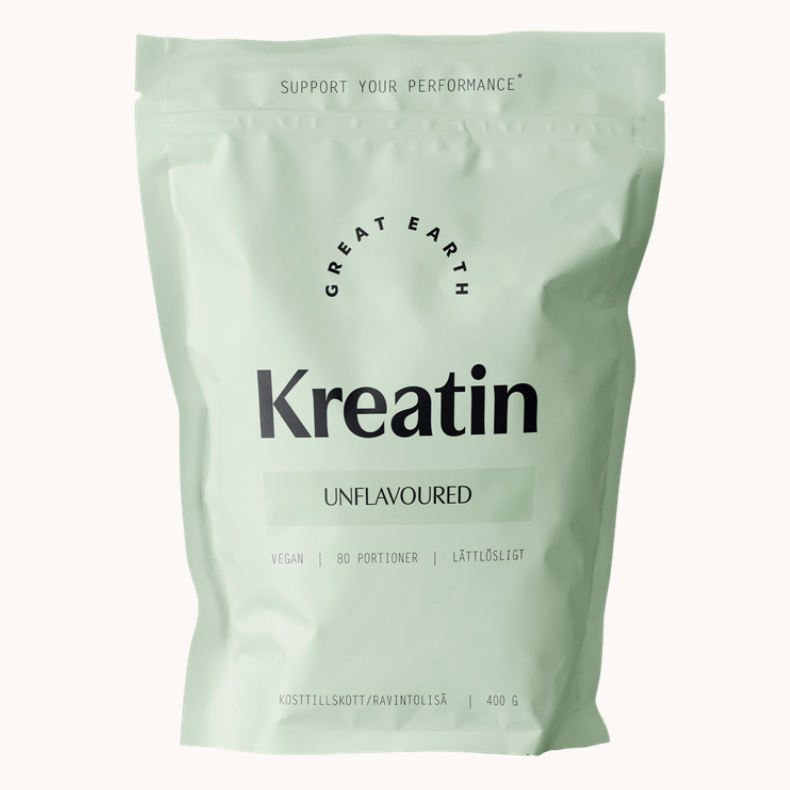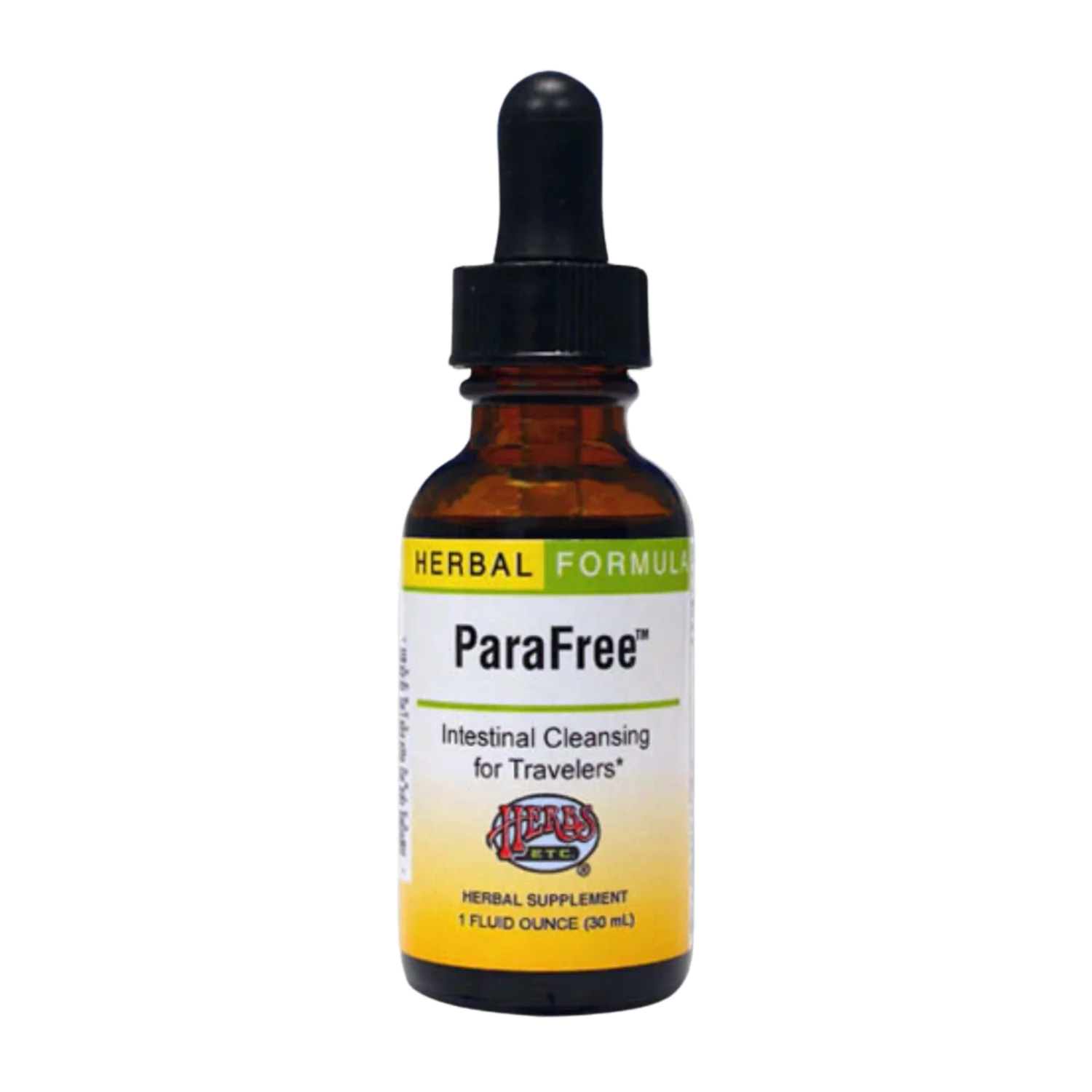creatine
340 kr
In stock
Food supplements that can boost energy and physical performance.
Although creatine has historically been used for training, creatine is actually a fantastic supplement that can give both your body & mind a boost.
Contents
Creatine monohydrate
Dosage
Recommended intake: 1 tsp (5 g) daily mixed in 300-500 ml water.
Package
400 g
The recommended daily intake should not be exceeded. Food supplements should not be used as an alternative to a varied diet. Keep out of reach of small children.

Energy for body & mind
Creatine monohydrate helps to increase your energy and endurance so that you can cope with all the challenges of the day. Creatine is found naturally in the body, including in the muscles and brain, where it is involved in the production of energy (ATP).
Creatine increases physical performance during repeated exertion associated with short-term and high-intensity exercise. The beneficial effect is achieved with a daily intake of 3 g creatine.
So, if you want to feel fitter and stronger in your everyday life, creatine could be just what you need!
Creatine is important for women too
Feeling tired and experiencing a drop in energy levels? Creatine powder is much more than just a muscle-building supplement, it’s a natural substance that plays a crucial role in the body’s energy production and overall well-being – especially important for women of all ages.
Creatine benefits:
–Hormonal changes: Creatine helps to influence energy levels and mood
–Preserving muscle mass: Creatine helps to preserve muscle mass and strength. Especially when muscle mass naturally decreases with age.
–For the high achiever: Creatine powder is popular with women who juggle many roles and responsibilities in everyday life. Can help increase focus and energy.
Related studies and articles
Creatine has long been known as a supplement for exercisers – but now research shows that it may also help the brain. A new study raises hopes that creatine may ease symptoms of Alzheimer’s disease.
















